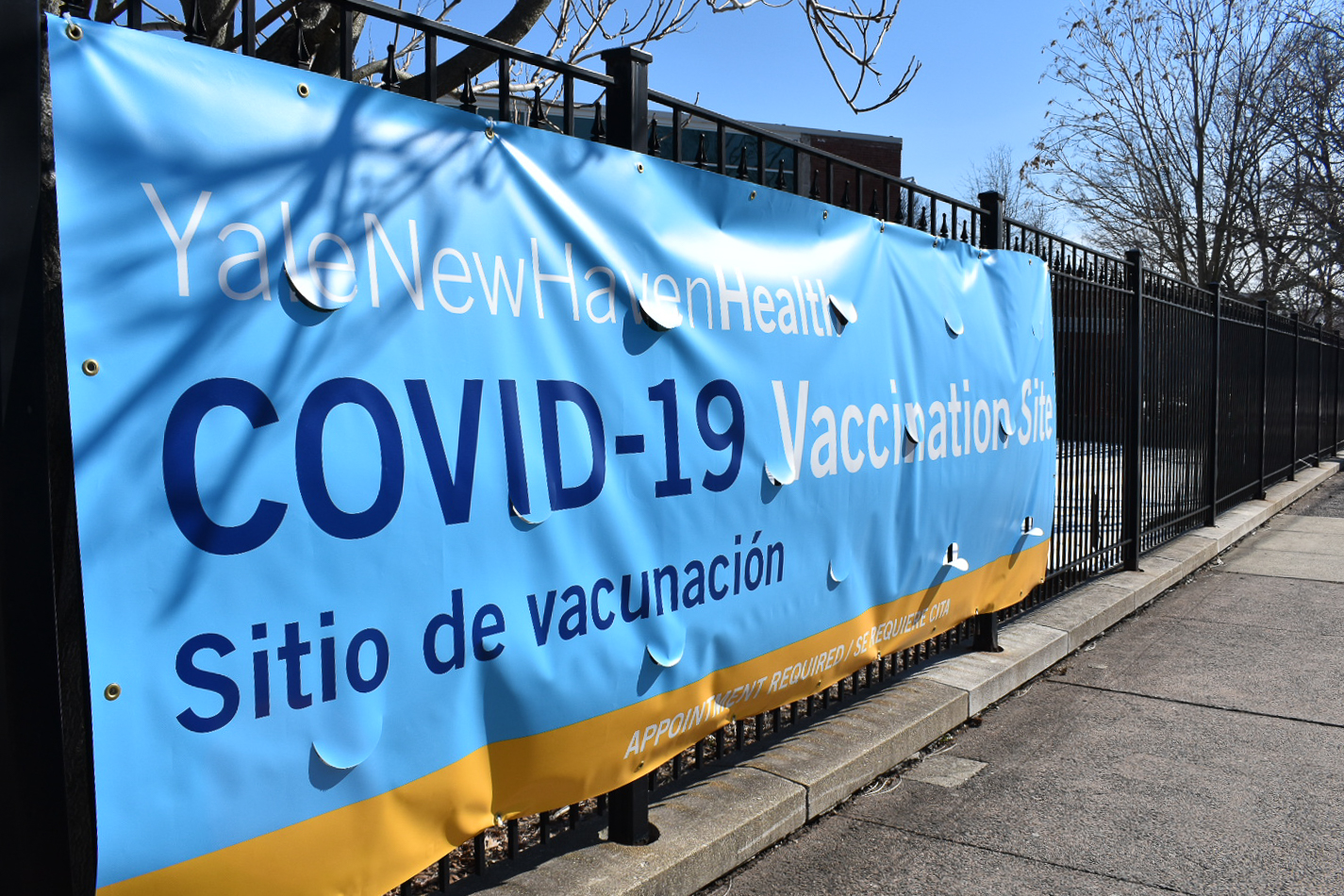
Regina Sung, Contributing Photographer
On Feb. 22, Gov. Ned Lamont announced that Connecticut will now follow a largely aged-based eligibility order instead of following the state’s previous plan of prioritizing vaccinating essential workers and those with preexisting health conditions of any age.
The new plan, described by the governor to be simple and efficient, is a notable break from national CDC recommendations. In the new plan, Lamont announced that Connecticut will use an age-based approach to determine who is eligible for the vaccine, and he laid out a schedule for age group eligibility over the next several months. In addition to age-based eligibility, pre-K-12 school staff and teachers, as well as professional child care providers regardless of age, will be eligible to receive the vaccine.
Under this new system, individuals between the ages of 16 and 34 are not expected to be eligible until May 3. That means that medically vulnerable Yalies — students with underlying health conditions that would have qualified them for the vaccine far earlier under Connecticut’s previous vaccine eligibility system — have now largely been pushed to the back of the queue. Prior to the new statewide vaccination plan, medically vulnerable students were to be vaccinated through Yale Health during the first two weeks of March.
“Only time will tell what will be the most efficient roll out policy,” Maryanne Cosgrove ’21 said. “But every informed body is recommending that [medically vulnerable] people be given priority, and it’s appalling to me that the governor would have the audacity to pretend they don’t exist or that they don’t matter.”
Cosgrove, who is at greater risk for COVID-19 due to health conditions, explained that she would have already been eligible for vaccinations in New Jersey and the greater Philadelphia area, which she usually calls home.
She spent her last semester studying remotely, but she decided to come to New Haven to gain access to library resources for her senior thesis. While making that decision, she was under the impression that Connecticut would roll out a vaccination schedule that would accommodate medically vulnerable individuals like herself.
Currently, she could make the trip back to her home state to be vaccinated, but appointment scheduling is haphazard and she does not want to put family members at risk. In addition to those considerations, the trip would involve a multi-day before- and after-travel quarantine — precious time taken away from a busy semester.
Joaquín Lara Midkiff ’24, vice president of the student advocacy organization Disability Empowerment for Yale and the accessibility and disability policy chair for the Yale College Council, explained that individuals with certain health conditions are not only physically “high-risk” but may face financial insecurity at a higher rate than other populations.
“The governor’s age-based rollout policy is inconsistent to what I believe to be equitable,” Lara Midkiff said.
On Feb. 18 — just days before the governor’s announcement — DEFY was able to secure an agreement with Yale Health to ensure that high-risk individuals would be prioritized in the vaccination queue.
“The governor, in changing directions on vaccine eligibility, expressed the expectation that using age-based categories would simplify and speed distribution of vaccines,” COVID-19 Coordinator Stephanie Spangler told the News. “I certainly understand the disappointment of those who thought their turn for vaccination would come in the next phase. I am hoping that the governor’s commitment to speed and efficiency, coupled with the Biden administration’s strong focus on increasing vaccine production, will make vaccination a possibility for our entire community soon.”
Under Connecticut’s previous vaccination plan, Ryan Felner ’24 also would have been eligible for the vaccine, since he is immunocompromised.
For many months, Felner viewed early March as “the finish line,” and he was deeply upset to have been placed at the back of the vaccine line despite his medical vulnerabilities.
“I was angry, for myself, but also for the countless people who suffer from even more severe conditions,” Felner said. “This policy completely leaves them behind, putting them in harm’s way for months longer in many cases. It’s just completely misguided to deny vaccine access to the most medically vulnerable people.”
Both Lara Midkiff and Cosgrove pointed out that the revised vaccination plan neglects not only medically vulnerable individuals under the age of 60, but also frontline workers of non-medical industries who have continued to work in person throughout the pandemic.
“The world would not run without those people working these incredibly important jobs, who are often women, people of color and working class people,” Cosgrove said.
On March 2, President Biden announced that the country was on track to have enough COVID-19 vaccines for every adult in the United States by the end of May.
Julia Bialek | julia.bialek@yale.edu
Emily Tian | emily.tian@yale.edu









